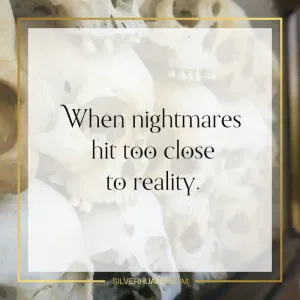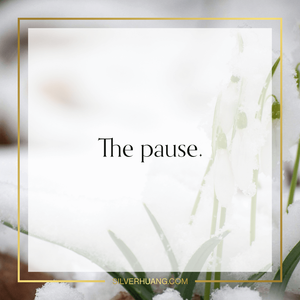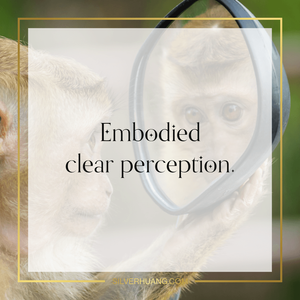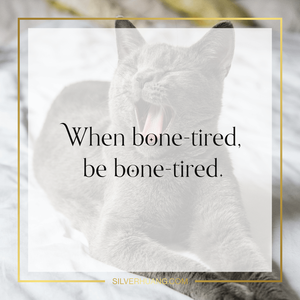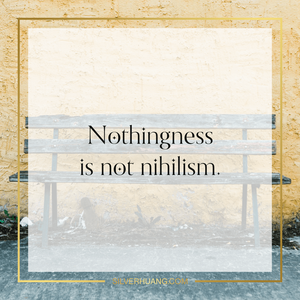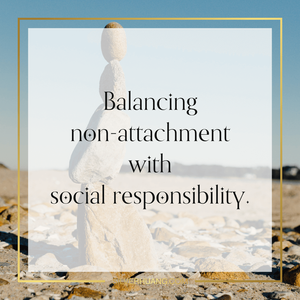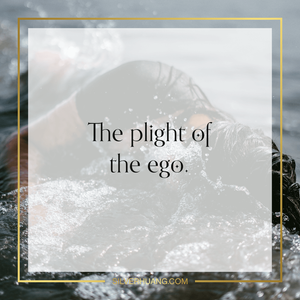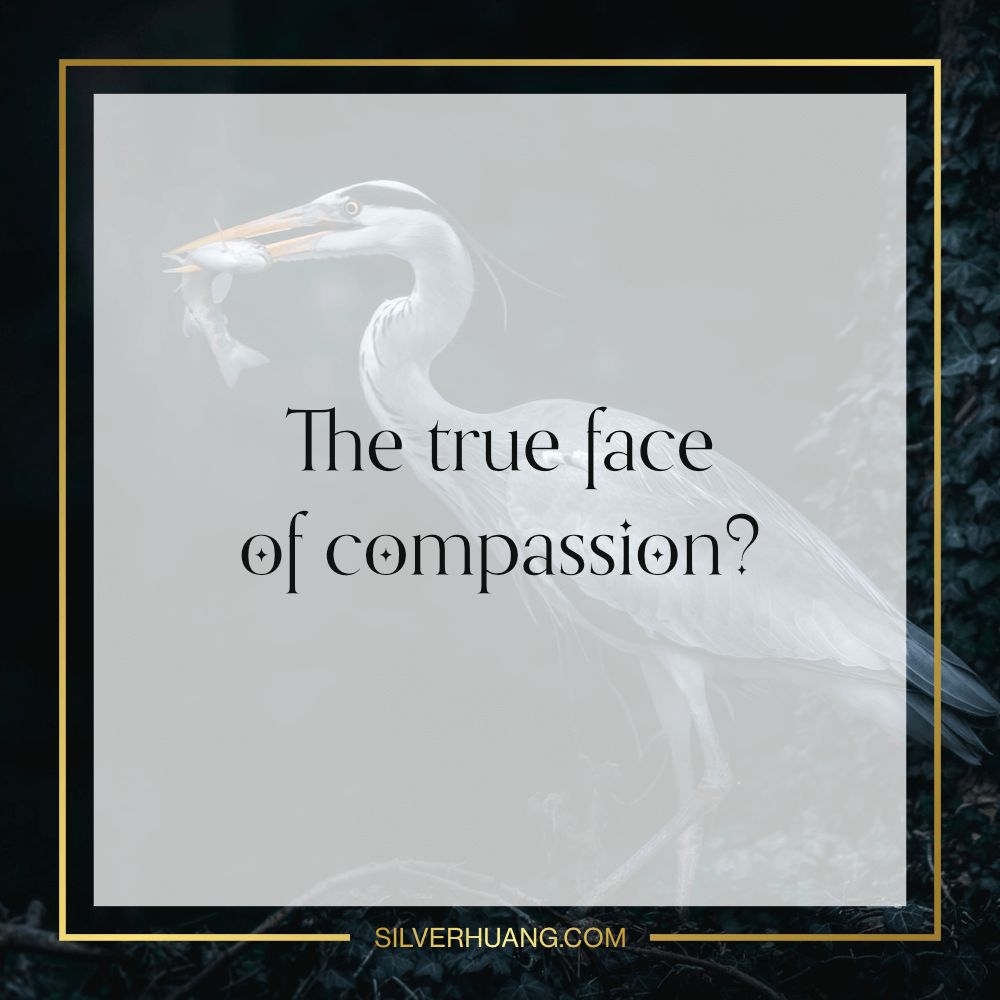
The true face of compassion?
When I began my active foray into the practice of nothingness two months ago, much time was initially spent floating about contentedly in the waters of emptiness, appreciating the sense of "home".
After a while, though, form began to, well, uh, form, in this formless space. Or, put another way, form began asking to be formed. A deeper clarity was asking to be born.
I say asking because the first forms that presented themselves were questions, beginning with:
- Why does nothingness matter to me?
I shared the answer that emerged from my contemplations on this first question on Mastodon last week:
I believe that compassion cannot not arise when I genuinely perceive and comprehend the nothingness of all, because I see then how I/we fall for the illusion of form, and in grasping at that illusion, generate delusions that cause suffering.
And I believe that one cannot genuinely witness suffering, of self or others, without experiencing compassion. (Nervous system regulation dependent.)
Ultimately, I keep finding that the reason for my studying nothingness is the study of compassion.
The next question soon followed, though. (Ahhh... the insatiable curiosity of the existential!)
- Why does compassion matter to me?
My body-mind literally baulked at the question because it simply could not conceive of any reality where compassion is not vital!
I persisted, anyway, and was surprised that answering this question—to my satisfaction—seemed more convoluted than I expected.
It occurred to me that I appear to be cobbling (and cross-examining) my own "cosmogony" or "metaphysics" or something, so to speak, to craft my understanding of why I exist.
As a dear friend shared about my writing, "You're not telling other people how to make meaning. Instead, what you're doing is saying, 'This is how I make meaning.'" Which is so true. ❤️
I shared the following draft of my cosmogony-whatever-you-wanna-call-it on Mastodon last month:
1. Nothingness is formless, thingness is form.
2. The form of thingness arises from the formless of nothingness, thus all form is empty and illusory.
3. The emptiness of form is cause of impermanence of form.
4. Wanting what is inherently impermanent to be permanent. This is delusion.
5. Suffering is born from delusion, through mechanisms like grasping, contrivance and scheming, etc.
Which ended up getting unexpectedly fleshed out last week thanks to a fantastic chat I had with another dear friend. 😍
We started with a discussion on "the political" and what constitutes political action, and ended up tunnelling deep into nervous system science and existentialism. Yee haw! 🤸
We ended up playing with a hypothesis that posits evolutionary-drive-for-survival on a cellular level being the major root cause for what we humans experience as an existential obsession with the self and ego.
Afterwards, I updated my above draft to include the following:
6. I grasp to form because I grasp for certainty.
7. I grasp for certainty because I grasp for safety.
8. I grasp for safety because form(that-is-I) grasps for its existence. For form cannot be form without existing.
How does this connect to why compassion matters to me?
The words, "Compassion is the counterpoint to existence," flashed through my mind several times while contemplating this, and, to be honest, it didn't initially make sense.
My body-mind-intuition does not use language in ways that make normative-semantic sense. In this space, it's always more about the taste of the words, the feel, and texture of them, rather than the dictionary's assigned definitions.
Now, I understand what my body-mind-intuition is trying to say to me. So, what I mean when I say that it doesn't quite make sense is that I'm not sure if what it's trying to say holds up to scrutiny—I'm pondering this out as I write!
To further illustrate, here is a YouTube short illustrating a 3D visualization of a tesseract:
See, when the words, "Compassion is the counterpoint to existence," landed, they didn't land alone; they landed with the visual of a tesseract.
Looking at the above model, you can kind of say that:
- There is "one end moving inwards", and
- There is "the other end moving outwards".
My body-mind-intuition was using this model of the tesseract to represent the "form-of-self", and it was using the "inwards" and "outwards" movement of the tesseract-as-self to illustrate to me that:
- We "take in", and
- We "give out".
Hence, self is not static.
What this also implies, though, is connectedness, for:
- Where or what do we "take in" from, and
- Where or what do we "give out" to?
Hence, self is not separate.
We are neither static, nor separate because we are all a part of and connected within an ecology-of-form vaster and more intricate than most of us can imagine.
I now think that the reason my body-mind initially baulked may not be for the reason I initially assumed it to be.
I now think that I started out examining this question of, "Why does compassion matter to me?" with a bias: A romantic assumption that compassion is altruistic.
That compassion is "good", and therefore, the thing to do.
I realized that I had imagined that the phrase, "Compassion is the counterpoint to existence," meant more like, "Compassion is the benevolent force to counteract the malevolent forces of selfishness in the world."
Now I'm not so sure.
I'm starting to wonder if compassion can be considered just as self-ish. The only difference being that:
- Existence without compassion leads to delusional mindsets and behaviours that deny the ecology-of-form that lead, ironically, to (existence)destructive outcomes, whereas
- Existence with compassion is merely a pragmatic acknowledgement of the factualness of ecology-of-form, and therefore, leads to more effective problem-solving approaches that can lead to more form-favoured/existence-favourable outcomes.
Perhaps I should reword my body-mind-intuition's phrase to, "Compassion is the other-face of existence." Once again, not using language like any ordinary person would 🤣; what I mean is like a glass pane has two faces. Janus-like.
- Form cannot be form without existing.
- Existence cannot exist without compassion.
After all, separation does not, cannot, exist when all is nothing.
Hence, perhaps I'm not as altruistic a person as I always imagined myself to be. 😅 (Pop! goes the ego!)
Perhaps I've always only been pragmatic, and that's why compassion matters to me: For me to exist, others must first/also exist.
Could this be the true face of compassion, I wonder?

